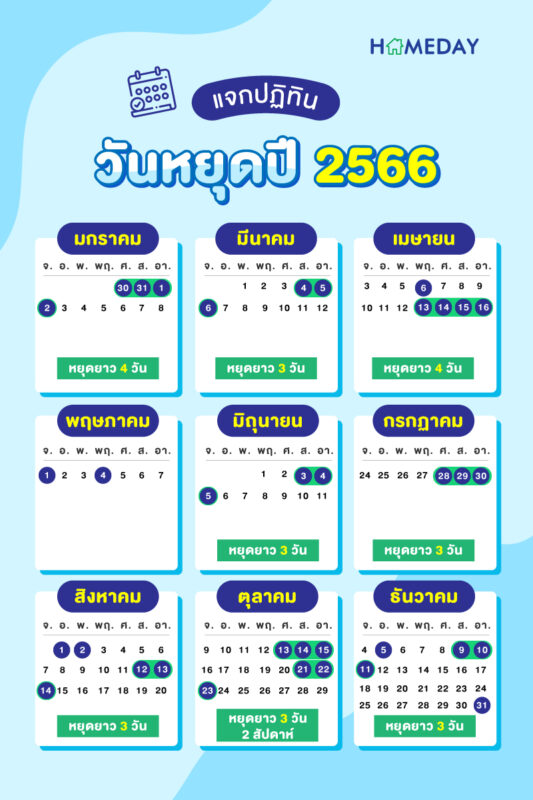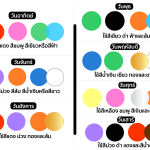
ฤกษ์ดีปี 2568: คู่มือเลือกวันมงคล เสริมดวงทุกด้าน
[ฤกษ์ดีปี 2568: คู่มือเลือกวันมงคล เสริมดวงทุกด้าน] Exe […]
[ฤกษ์ดีปี 2568: คู่มือเลือกวันมงคล เสริมดวงทุกด้าน]

Executive Summary

This article aims to guide readers through the art of selecting auspicious dates for various life events in the year 2568. We delve into the concepts of Thai astrology and traditional beliefs, exploring how to identify days that are believed to bring good fortune, success, and harmony. From wedding ceremonies to housewarming parties, business ventures to important personal milestones, we provide practical advice and insights for choosing dates that resonate with your aspirations and intentions. Whether you’re a seasoned believer or simply curious about this ancient wisdom, this comprehensive guide will empower you to harness the power of auspicious dates for a more fulfilling and prosperous year ahead.

Introduction
The year 2568 is upon us, and with it comes a fresh slate of opportunities to embrace the positive energies that guide our lives. In Thai culture, the selection of auspicious dates for major events, ranging from personal milestones to significant business undertakings, is deeply intertwined with traditional beliefs and astrology. This practice, often referred to as “ฤกษ์ดี” (pronounced “ruek dee”) – meaning “good fortune” or “auspicious timing” – stems from the belief that specific days possess unique energies that can influence the outcome of events.
Understanding Thai Astrology and Auspicious Dates
Thai astrology, known as “โหราศาสตร์ไทย” (pronounced “horasaat thai”), draws heavily from Vedic astrology, and utilizes the positions of celestial bodies like the Sun, Moon, and planets to interpret individual astrological charts and predict future events. These celestial movements are believed to influence the flow of energies and, consequently, the success or failure of undertakings. Auspicious dates, also known as “ฤกษ์” (pronounced “ruek”), are days that align with the positive energies of celestial bodies based on the principles of “โหราศาสตร์ไทย”.
- Zodiac Signs: Similar to Western astrology, Thai astrology categorizes individuals into twelve zodiac signs based on their birth date. These signs are associated with specific elements (earth, water, fire, air), personality traits, and auspicious directions.
- Nakshatras: The concept of Nakshatras, also known as lunar mansions, is central to Thai astrology. These are 27 specific segments along the zodiac, each associated with unique characteristics and influences.
- Planetary Influences: The alignment and positions of planets at the time of an event are crucial for determining the auspiciousness of a date. Planets are associated with various qualities and aspects of life, such as wealth, relationships, career, and health.
- Graha: Graha, meaning “planet” or “influencer,” refers to the celestial bodies that influence the energies of specific days.
- Muhurta: This term signifies the auspicious time or “moment” for a particular event. Muhurta calculations often involve determining the ideal time based on the positions of planets and other celestial bodies.
Choosing the Right Date for Specific Events
Weddings
The selection of a wedding date is particularly significant in Thai culture. “ฤกษ์แต่งงาน” (pronounced “ruek dtaeng ngaan”), or wedding auspicious dates, are chosen to ensure a harmonious and prosperous union. Here’s a breakdown of important considerations:
- Day and Time: Friday and Saturday are generally considered auspicious days for weddings, while the hour of 10:00 am – 11:00 am is often favored.
- Zodiac Compatibility: The compatibility of the bride and groom’s zodiac signs is a crucial factor.
- Nakshatras: Selecting a Nakshatra that is associated with love, marriage, and family harmony is essential.
- Planetary Positions: Planets like Venus, Jupiter, and Mercury, associated with love and prosperity, should ideally be in favorable positions.
- Avoidance of Negative Energies: Dates with unfavorable planetary alignments or negative Nakshatras should be avoided.
Business Ventures
For businesses, selecting an auspicious date for “ฤกษ์เปิดร้าน” (pronounced “ruek bpert raan”) – opening a store or “ฤกษ์ลงทุน” (pronounced “ruek long toon”) – investing, can set the tone for success and growth.
- Auspicious Days: Monday, Wednesday, and Friday are often considered favorable for new beginnings.
- Lucky Numbers: Numbers associated with prosperity, such as 8 and 9, are often incorporated into the date selection.
- Favorable Directions: The direction of the business entrance should align with auspicious directions for the particular industry.
- Nakshatras: Nakshatras linked to wealth, prosperity, and business success are preferred.
- Planet Alignments: Planets like Mercury and Jupiter, associated with communication, expansion, and abundance, should be in favorable positions.
Housewarming Parties
Moving into a new home is a significant event, and selecting an auspicious date for a “ฤกษ์เข้าบ้าน” (pronounced “ruek kao baan”) – housewarming party – is important for establishing a positive energy flow within the home.
- Auspicious Days: Tuesday and Thursday are often considered favorable days for new beginnings and positive energy.
- Nakshatras: Nakshatras linked to home, family, and prosperity are chosen for this event.
- Planetary Influences: The alignment of planets like Venus and Jupiter, associated with harmony, prosperity, and happiness, is considered favorable.
- Avoidance of Negative Energies: Days with unfavorable planetary alignments or negative Nakshatras should be avoided.
- Placement of Items: The placement of certain items within the home, based on traditional beliefs, can enhance positive energy and luck.
Pros and Cons of Selecting Auspicious Dates
Pros
- Positive Energy Flow: Choosing auspicious dates aligns with the belief that positive energies can influence the success of events.
- Enhanced Success: The belief in auspicious dates can create a sense of hope and optimism, which can contribute to a more favorable outcome.
- Harmonious Relationships: In the context of weddings, selecting an auspicious date is thought to contribute to a harmonious and successful union.
- Peace of Mind: Knowing you’ve aligned your event with auspicious timing can provide peace of mind and reduce anxieties.
Cons
- Lack of Scientific Evidence: The concept of auspicious dates is based on traditional beliefs and astrology, which lack scientific validation.
- Possible Superstition: Over-reliance on auspicious dates can be perceived as superstition, potentially limiting personal agency and decision-making.
- Limited Availability: Auspicious dates may be limited, making it challenging to accommodate everyone’s schedules or preferences.
- Cultural Differences: Interpretations of auspicious dates can vary across different regions or communities, leading to potential misunderstandings.
Conclusion
The art of selecting auspicious dates for events is deeply rooted in Thai culture, offering a rich framework for understanding the connection between celestial bodies, energy flow, and human endeavors. While the concept of auspicious dates is not scientifically proven, it offers a compelling blend of tradition, belief, and cultural significance. Ultimately, the decision to choose an auspicious date is a personal one, guided by individual beliefs and aspirations. If you find yourself seeking a deeper understanding of this practice, consulting with a knowledgeable “โหราศาสตร์ไทย” (pronounced “horasaat thai”) – Thai astrologer – can provide valuable insights and guidance. Remember, the most auspicious date is the one that aligns with your intentions and beliefs, fostering a sense of hope, harmony, and prosperity in your journey ahead.
Keyword Tags
- Thai astrology
- Auspicious dates
- ฤกษ์ดี
- Wedding dates
- Business dates
- Housewarming dates
ดวงชะตา ปีใหม่
ปี 2568 มงคล
ฤกษ์ดี เสริมดวง
วันมงคล พิธีกรรม
ศาสตร์โหราศาสตร์
เคล็ดลับ เสริมโชค
โชคลาภ มงคล









